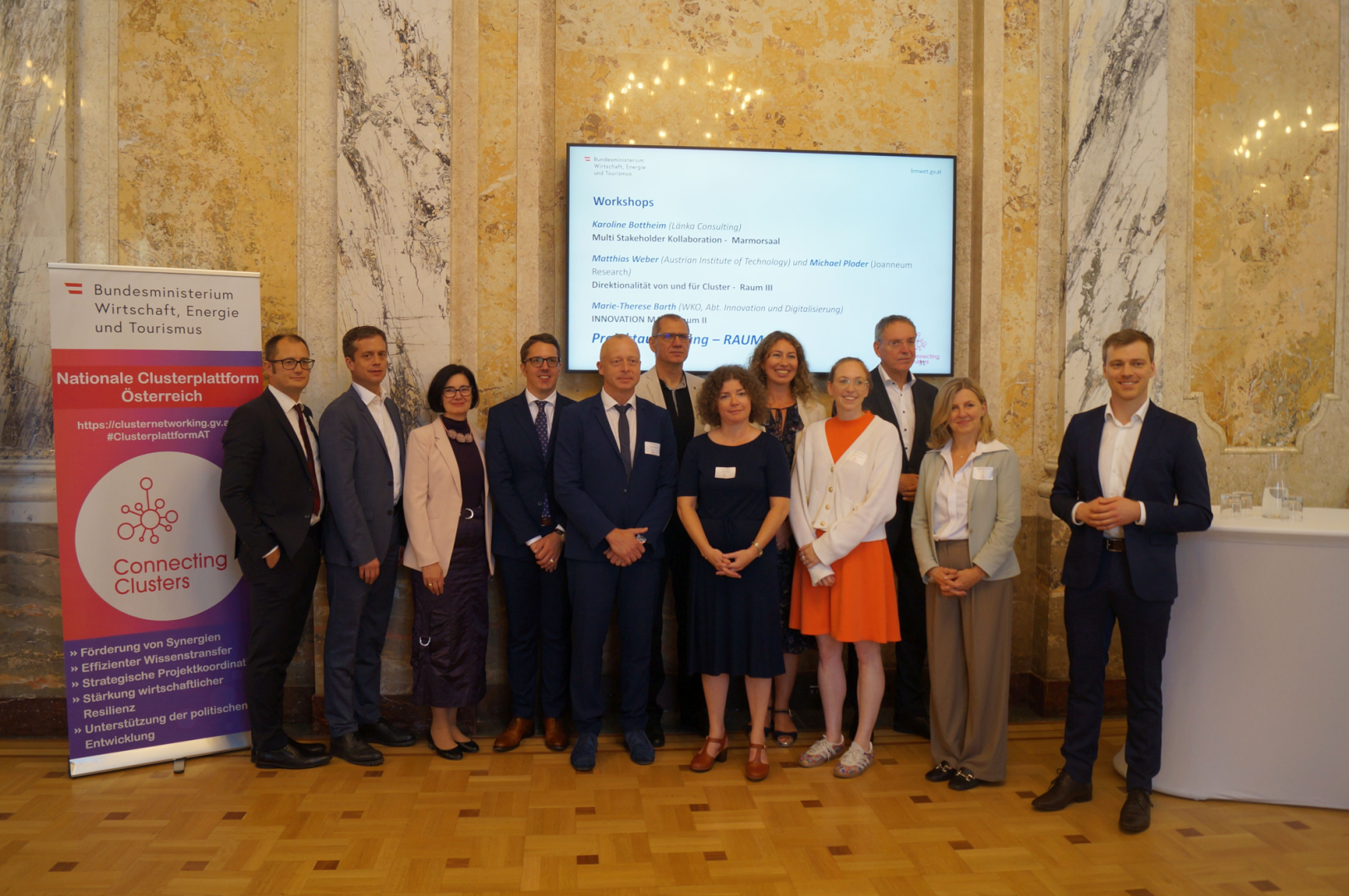Clusters Driving Transformation: Annual Conference of the National Cluster Platform in Vienna

One day. One topic. One strong community.
On September 9, 2025, around 100 cluster representatives from all sectors and regions of Austria gathered in Vienna at the invitation of the Federal Ministry for Economy, Energy and Tourism (BMWET) for the Cluster Annual Conference.
The 2025 conference focused on the key question of how clusters can serve as a powerful model for transformation, resilience, and industrial renewal – especially in times of major economic and societal change.
State Secretary for Energy, Start-ups and Tourism, Mag. Elisabeth Zehetner, emphasized the importance of Austria’s cluster landscape for the national economy. She welcomed numerous leading figures from business, politics, research, and public administration – both nationally and from across Europe. Policymakers see clusters as a successful model to strengthen Austria as a business location and expect valuable impulses, particularly in the fields of artificial intelligence and digitalization.
For the first time, a representative of the European Commission joined as a guest speaker: Mariella Masselink, Head of the Unit Industrial Forum, Alliances and Clusters in the Directorate-General for Internal Market, Industry, Entrepreneurship and SMEs. She highlighted the necessary transformation of clusters at the European level and their evolving role, referring to the Competitiveness Compass. Clusters, she noted, make a key contribution to strengthening competitiveness – especially along three pillars: closing innovation gaps, reconciling decarbonization with competitiveness, and enhancing security in new trade relations and supply chains.
Another highlight was the keynote by Roland Sommer, Managing Director of the Industry 4.0 Platform Austria, which is currently tasked with facilitating the process of developing Austria’s new industrial strategy. He presented core aspects of this strategy process, which brings together business, policymakers, and social partners, as well as so-called “sounding boards” composed of companies, employees, and representatives from academia. Sommer stressed Austria’s strengths in productive capabilities: production is not just manufacturing, but also expertise – knowledge that must be preserved during transformation.
Jan-Philipp Kramer, Partner and Head of EU Services at PROGNOS AG, provided an overview of the European cluster system. He underlined that no comparable system exists in the United States or China, making it a crucial – though not exclusive – response to upcoming challenges. Highly inspirting, he brought a double perspective to the Austrian cluster community: the European one, but also that of how Austrian clusters are perceived through the lenses of the analysis done by the European Cluster Collaboration Platform (ECCP). Food for thought for the upcoming study on the state of play of cluster policy in Austria that will be done by the end of 2025.
Participants also had the chance to visit a project exhibition and join interactive workshops on pressing cluster-related topics. Sessions ranged from “Mission Orientation of Clusters” to visionary technologies showcased in the Innovation Map, as well as “Multi-Stakeholder Collaboration” across business, research, and administration. These formats offered valuable insights into new developments.
📸 Photo: BMWET/Veronika Noisternig
Contact
Coordination Office of the National Cluster Platform
📧 office [at] clusterplattform.at (office[at]clusterplattform[dot]at)